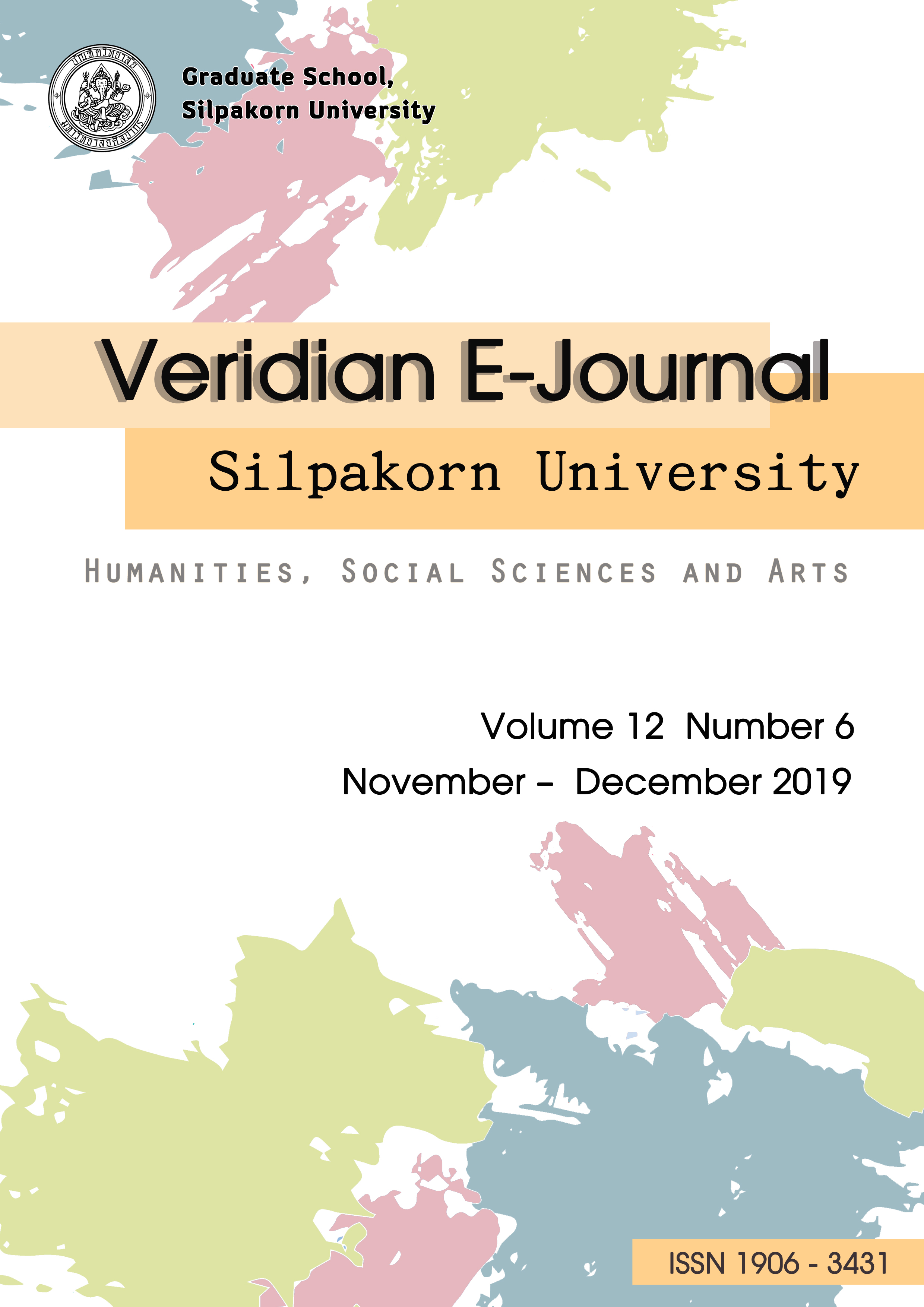การใช้และการประเมินผลประโยชน์ของเทคโนโลยีสะอาดสำหรับอุตสาหกรรมสิ่งทอไทย (Utilization and Benefit Assessment of Cleaner Technology for Thai Textile Industry)
Main Article Content
Abstract
การส่งเสริมการใช้เทคโนโลยีสะอาดในอุตสาหกรรมสิ่งทอโดยสถาบันพัฒนาอุตสาหกรรมสิ่งทอเพื่อส่งเสริมให้เกิดการจัดการทรัพยากรการผลิตที่มีประสิทธิภาพ ลดมลพิษจากกระบวนการผลิต และลดต้นทุนที่เกิดขึ้นจากการผลิต ดังนั้นเพื่อชี้ให้เห็นถึงผลสำเร็จของโครงการดังกล่าว การศึกษานี้จึงมีวัตถุประสงค์เพื่อประเมินผลประโยชน์และผลสำเร็จจากการส่งเสริมการใช้เทคโนโลยีสะอาดในอุตสาหกรรมสิ่งทอ โดยใช้วิธีการประเมินผลกระทบทางเศรษฐศาสตร์ (Impact Assessment) โดยการเก็บรวบรวมข้อมูลจากการสัมภาษณ์เชิงลึกของผู้ประกอบการ จำนวน 2 บริษัท พบว่าโครงการส่งเสริมการใช้เทคโนโลยีสะอาด ไม่เกิดความคุ้มค่าทางเศรษฐกิจในระยะสั้น (พ.ศ. 2560-2561) แต่ในระยะยาว (พ.ศ. 2560-2570) โครงการนี้เกิดความคุ้มค่าทางเศรษฐกิจ ทั้งนี้ การประเมินโครงการดังกล่าว ไม่รวมผลประโยชน์ทางด้านสิ่งแวดล้อมที่เกิดขึ้นจากโครงการซึ่งการส่งเสริมเทคโนโลยีสะอาด สถาบันพัฒนาอุตสาหกรรมสิ่งทอ ควรจัดกลุ่มบริษัทเป็น 2 กลุ่ม คือบริษัทรายเดิม และรายใหม่ เพื่อมุ่งเน้นการส่งเสริมแบบเฉพาะเจาะจง ด้วยความแตกต่างของประเภทอุตสาหกรรม มุ่งเน้นการอบรมภายใต้ระบบให้คำปรึกษาจากผู้ทรงคุณวุฒิในบริษัทรายใหม่ และการประเมินและติดตามผลเพื่อให้การรับรองกับบริษัทรายเดิม นอกจากนี้กระทรวงอุตสาหกรรมควรพิจารณาการถ่ายทอดเทคโนโลยี และการบังคับใช้กฎหมายอย่างเป็นรูปธรรม
The benefits of the cleaner technology in the textile industry can be exhibited as follows: increasing production efficiency, resource management, pollution and cost reduction. Thailand Textile Institute (THTI) has been actively to promote cleaner technology applied in the textile industry. Thus, to evaluate this project, the research focuses to assess an economic impact of the cleaner technology extension project. The data used in this study is in-depth interviews of the 2 company’s owners. The result show the ex-post evaluation (B.E. 2560-2561) yields a negative value of NPV, in other words, the project is not viable in the short run. On the contrary, the combination of ex-post and ex-ante evaluation (B.E. 2560-2570) reveals the opposite results in the long run. However, both short run and long run evaluations do not include environmental benefits derived from the project. To promote cleaner technology, THTI should at least classify the textile companies into 2 groups: new and existing company members. Means to enhance cleaner technology must be specific due to different types of the members. Focuses on training under mentoring system should be made for the new members, and monitoring and evaluation including certification should be emphasized on the existing members. In addition, technology transfer and effective
